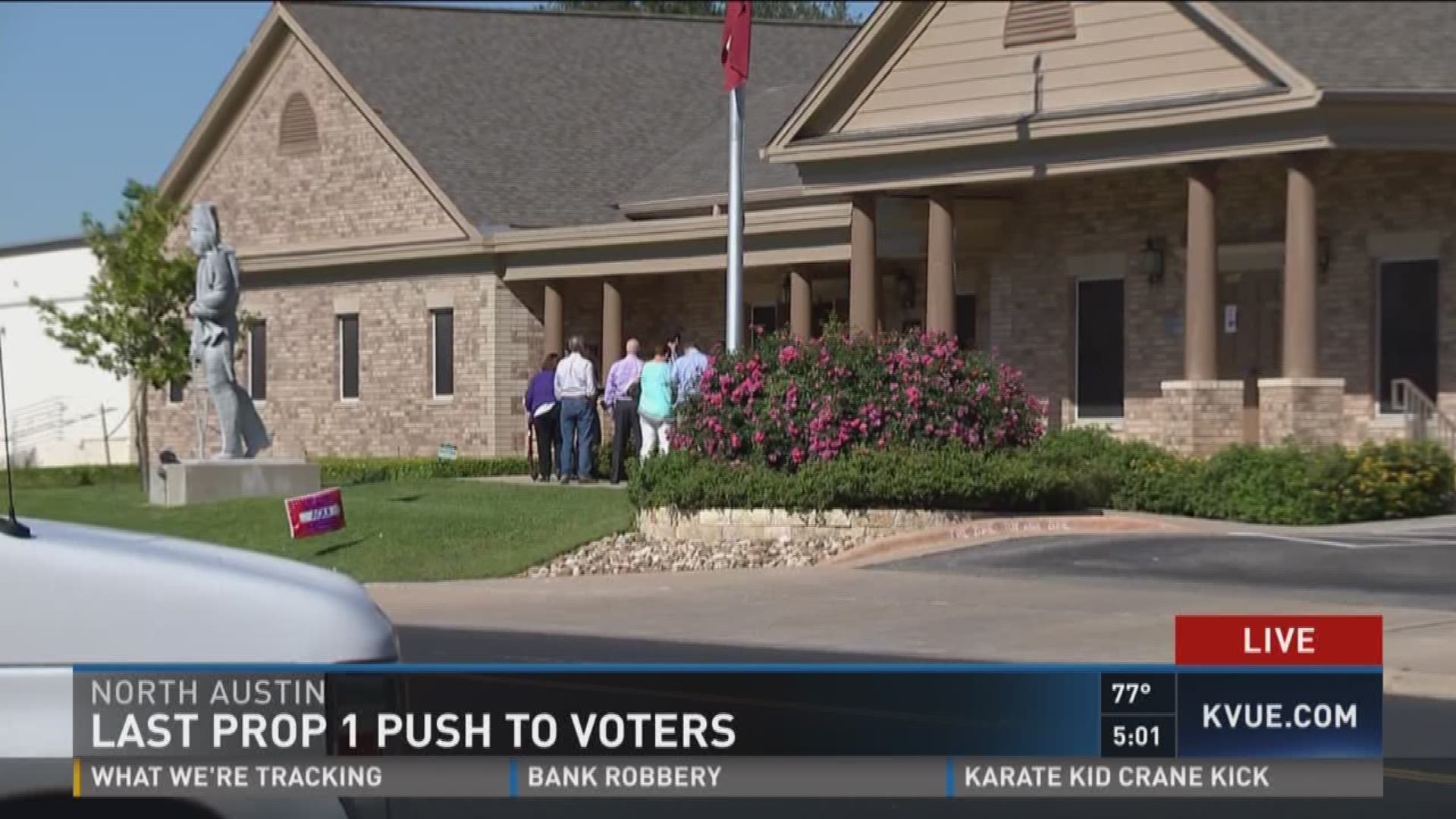Austin residents are being inundated with messages about Prop 1.
If the proposition passes, it will repeal the current city ordinance that regulates Transportation Network Companies and meaning Uber and Lyft will be able to do name-based background checks. If it fails, the city's ordinance that has benchmarks to implement fingerprint-based background checks will remain in effect.
"I've seen a lot of ads on multiple networks and channels. I've seen a lot of signage around and stuff on Facebook, Twitter and all that," said Austin resident Emily Mokotoff.
The PAC supporting the proposition, Ridesharing Works for Austin, has put flyers in mailboxes, emails in inboxes, ads on TV and online, and push alerts on cell phones. And now, things are getting even more personal.
"It's like a, you know, a car salesman, a used car salesman that's trying to, you know, get that quota in for the month or something," said resident Kyle Woods. "And they're just pushy, pushy, pushy with the random text messages."
Woods got a text message yesterday that read: "Kyle, this is Alex from Uber. Ridesharing is on the ballot & early voting ends tomorrow! Can we count on your vote FOR Prop. 1 to keep Uber in Austin?"
"It's like I don't know Alex from Uber," said Woods. "And you know, he's asking me a question. Will you, can we count on you for voting for Prop 1?"
Woods isn't the only one getting texts.
"I didn't respond to the random number," said Sarah Anderson. "I think when I'm not interacting with the app right then and there, it's kind of an invasion of privacy to be soliciting me that way."
Texts are the tip of the iceberg.
"It was about 9:00, 10:00 at night and I heard a knock," said Shawna Reding, a digital content producer at KVUE. She said an Uber representative made a late night visit to her home. Lyft also reached out to her twice.
"They called me and I didn't recognize the number, I answered and they asked me how I was voting," Reding said.
Reding and Woods haven't voted yet and say the tactics aren't helping persuade them.
"I was just put off by it," said Woods.
"I don't feel comfortable as a citizen being confronted by a company that has an investment in the outcome of the election trying to persuade me on how I should vote," added Reding.
The tactics are even turning off people who support Prop 1.
"I felt really passionate about Prop 1 and I actually voted and I am educated around it," said Anderson. "But when I started getting personal text messages from Uber and emails and calls actually, it's kind of overaggressive and made me think otherwise."
While people say they're turned off by these tactics, political analysts say it's common and while it may be annoying, there's no evidence to suggest it negatively impacts their campaigns.
Voter turnout has exceeded expectations in early voting. As of Tuesday evening, nearly 58,000 people voted, which is 9.87 percent of the registered voters eligible to vote in this election.

